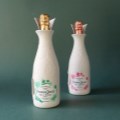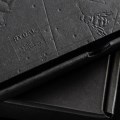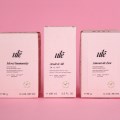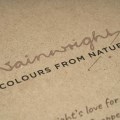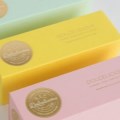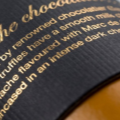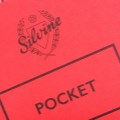If this is your company, CONTACT US to activate Packbase™ software to build your portal.


There’s an ever-increasing pressure on companies to reduce their carbon footprint by providing greener products and services – and the packaging industry is no exception; indeed, it’s an obvious area to cut down on waste. With paper being one of the most sustainable materials available, its use is ubiquitous in packaging for a number of different types of product. However, we’re always looking for ways to make paper production even more environmentally friendly.
Susan Wilson, global packaging director at British master papermaker James Cropper PLC explains how paper coffee cups are helping brands go green…
As keen innovators who are constantly searching for solutions to suit market and customer demands, James Cropper PLC has developed a number of new products and processes to improve sustainability. The investment in our reclaimed fibre plant, which was opened by the Queen in 2013, signifies our dedication and commitment to providing eco-friendly choices.
The function of the plant is to recycle paper cups and use the resulting material to create fine papers that can be used to produce anything from beautiful brochures to luxurious packaging, such as carrier bags and gift boxes. Crucially, the quality of the paper is indistinguishable from paper products made from virgin pulp, making it a popular choice amongst brands and retailers for whom high standards and sustainability must go hand-in-hand.
CUP WINNERS
Paper cups can’t typically be recycled amongst general paper waste due to their polyethylene coating, so we developed the technology to separate the two components and generate no wastage whatsoever – 90% of the cup waste is converted back into paper and the remaining 10% of plastic is recycled into other plastic products. The process is quick and clean and all chemicals used are neutralised by the end of the process.
At the moment, most of the material that is currently recycled is post-industrial waste, made up of off-cuts or defective items from disposable beverage cup production. However, we’ve recently started a trial recycling project with McDonald’s UK to process used paper cups and hope this can be rolled out further. James Cropper is currently processing around one and a half tonnes of material per hour, which equates to 10 million paper cups per week.
Using post-consumer waste will present new challenges, due to the fact that paper cups, unlike off-cuts, have been used. However, we’ve invested heavily in the development of our recycling facility and our technical team control, and manage the process to ensure that the fibre quality is of the highest standard.
Our reclaimed fibre plant contributes around 10% of our total fibre requirement and we expect to see that amount to gradually rise in the next few years.
In the past, recycled papers have not been of a quality comparable with papers made from fresh fibre. However, the reason for our investment in coffee cup recycling was to develop a reclaimed fibre that is virtually indistinguishable from fresh fibre and, as such, the quality of the resulting product is not compromised. Only ‘virgin’ pulp is used in the manufacture of paper cups as they need to be approved for direct food contact. Therefore, papers created using this reclaimed fibre are of the very best standard – take our ‘Coffee’ range, for instance, which contains 50% reclaimed cup fibre and has a wide range of applications for presentation and packaging.
IN THE BAG
Making papers tailored to customer requirements, whether that be in terms of colour, texture or designed to meet specific environmental credentials is our speciality. For instance, we created a paper called ‘Carvetian Suede’ for a designer leather bag brand which imitates the real-feel of suede. This soft touch paper contains 40% post-consumer waste and has become part of our portfolio of FSC® certified paper collections.
Securing a sustainable supply and reducing the carbon footprint are now hugely important targets for all brands and businesses. The current sustainability movement in the retail sector – driven by consumer demands, changes to company policies and government legislation, such as the plastic bag levy – has seen many big brands invest in their green agenda with strategies for a 2020 sustainability vision, such as producing zero waste or sustainably sourcing 100% of point-of-sale packaging.
There’s enormous appetite for the use of authentic materials that demonstrate the integrity of packaging and other items such as catalogues, gift vouchers and garment tags – which are all part of the customer experience. In fact, for some brands, it becomes an important part of their image. However, it’s also imperative to maintain brand recognition and credibility.
In order to enhance their green credentials, retail businesses must consider clever ways to ensure they can meet environmentally friendly goals and, as a key part of the packaging resource chain, we’re committed to helping clients achieve these goals.


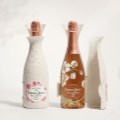
.jpeg)
